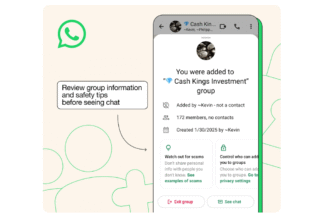The Post-Quantum Smart Meter Challenge: A Potential Threat to Households
As we venture deeper into the realm of technology, our reliance on smart devices increases exponentially. One of the most ubiquitous of these devices is the smart meter, which allows utility companies to remotely monitor energy consumption and enhance efficiency. However, in the wake of advancing quantum computing, a new challenge emerges — one that could potentially disrupt our households significantly. This blog post explores the post-quantum smart meter challenge, what it entails, and how it may affect everyday consumers.
Understanding Smart Meters
What Are Smart Meters?
Smart meters are digital devices that measure energy usage in real-time, providing both consumers and utility providers with insightful data. Unlike traditional meters, which require manual readings, smart meters communicate data autonomously via wireless networks. This not only helps in tracking energy consumption but also aids in developing more efficient grids.
Benefits of Smart Meters
The benefits of smart meters are numerous:
- Real-Time Monitoring: Households can track their energy consumption in real-time, enabling better management of electricity usage.
- Dynamic Pricing: Utility companies can incentivize users to inhabit off-peak hours and reduce energy costs.
- Grid Resilience: Smart meters allow for a more stable energy grid, as they can swiftly inform utility providers in the event of outages or failures.
Quantum Computers: A Double-Edged Sword
The Rise of Quantum Computing
Quantum computing represents a paradigm shift in computational power, harnessing the principles of quantum mechanics to perform complex calculations at speeds that classical computers can hardly match. Companies and governments around the globe are investing heavily in this technology, aiming to solve problems previously deemed impractical.
Security Implications
However, the advent of quantum computing brings with it significant security concerns. Current encryption algorithms used to protect data—including that from smart meters—are largely built on mathematical problems that can take classical computers thousands of years to solve. Quantum computers, on the other hand, could crack these codes within minutes, jeopardizing sensitive data and systems.
The Post-Quantum Challenge
How Quantum Computers Threaten Smart Meters
The intersection of smart meters and quantum computing presents a daunting challenge. Smart meters collect and transmit vast amounts of user data, which must be securely encrypted to protect consumers’ privacy and prevent hacking. If a malicious actor were to exploit a vulnerability due to quantum decryption capabilities, they could potentially manipulate energy usage data, disrupt services, or even cut off power to entire households.
Potential Scenarios
The implications can be chilling. Imagine a scenario where a hacker gains access to the smart meter data and adjusts the usage figures to show that a household is using excessive energy, leading the utility company to cut off service. Or consider a widespread attack that targets multiple meters in a region, causing an energy crisis and undue stress on emergency services.
Preparing for the Quantum Future
Transitioning to Quantum-Resistant Algorithms
To mitigate the risks posed by quantum computing, stakeholders in the energy sector must prioritize the transition to quantum-resistant algorithms. These new encryption methods are specifically designed to withstand the computing power of quantum machines. Research is underway to develop a set of cryptographic standards that are secure against quantum attacks, and implementing these standards in smart meter technology will be crucial in protecting users.
Collaboration Across Sectors
In order to effectively address these challenges, collaboration between governments, tech companies, and utility providers is essential. Standardizing security protocols and sharing knowledge about threats and defenses can build a resilient framework that prepares the industry for the quantum revolution.
Educating Consumers
While industry stakeholders work on technological solutions, consumer education is equally important. Households should be informed about the functionalities of their smart meters, including how collected data is stored and transmitted. Awareness can empower consumers to engage with their utility providers and ask about the safeguards in place to protect their information.
Conclusion: Navigating the Quantum Maze
The prospect of quantum computing is both thrilling and threatening, particularly when it comes to critical infrastructure like smart meters. As technology evolves, so too do the challenges we face in ensuring data security and privacy. If left unaddressed, the vulnerabilities created by quantum advancements could disrupt energy access for countless households.
However, by proactively transitioning to quantum-resistant encryption, fostering collaboration across sectors, and educating consumers, we can pave the way for a more secure future. The potential consequences of failing to act are significant, but with concerted efforts, we can harness the benefits of smart metering while safeguarding our homes against quantum threats. In this rapidly changing landscape, staying informed and engaged is our best defense.





